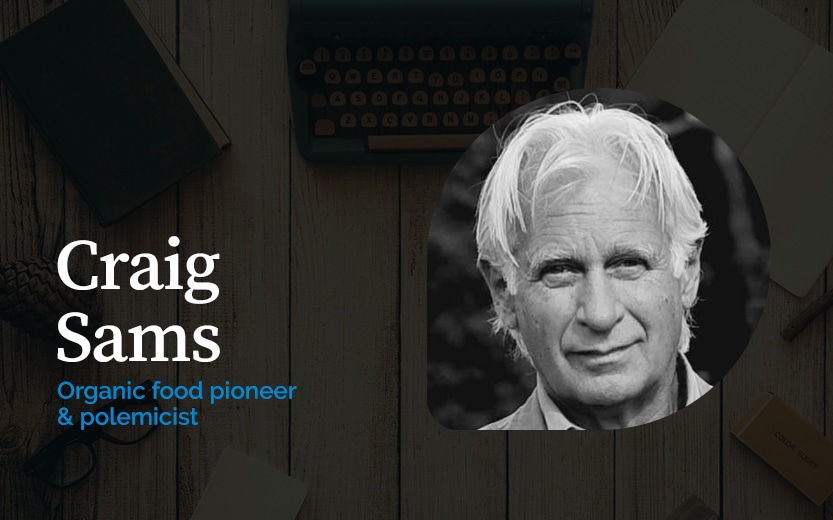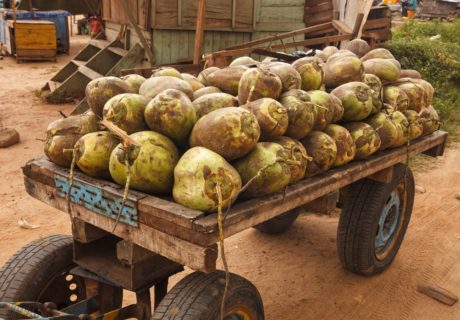People everywhere are reducing meat consumption. Craig Sams argues that organic farmers are well placed to adjust to the coming low-meat scenario
My late great aunt Sophia was very religious and faithfully observed all the fast days of the Orthodox Church’s nearly 2000 year-old religious calendar. When you totted up every Wednesday and Friday plus Lent, Dormition and Nativity Fasts she had about 180 days as a vegan, two with no food and another 40 that were ovo-lacto vegetarian. Two thirds of the year. She would never have described herself as a vegetarian, though. She once killed, skinned and cooked a rabbit when I came to lunch. She cooked broad beans, chickpeas and wheat for protein on meatless days. Her generation’s view was that you weren’t a proper Christian unless you adhered to the fasting rules, purely for spiritual reasons.
When Japan went Buddhist and vegetarian 1400 years ago it was made easier by having tofu and ‘seitan’ wheat gluten and meaty-tasting miso and soya sauce – the same meat-replacing foods that help people transition to the macrobiotic diet. Michelin 3 star chefs Alain Passard and Alain Ducasse both now have successful restaurants in Paris that are almost entirely vegan or vegetarian.
In 1981 my brother Gregory came up with an idea for a vegetarian burger mix. He registered the name ‘Vegeburger’ as a Trademark because it was such a novel term –(just imagine trying to do that today). Set up under the Realeat brand the Vegeburger took off like a rocket and Gregory hooked up with Gallup to launch an annual survey on ‘Changing Attitudes to Meat Consumption’ that revealed the dynamic growth in the market for vegetarian food that continues to this day. It shook off the ‘beards and sandals’ image that some backward folk still had about vegetarianism and made meat reduction hip and groovy. Pirate radio stations ran the first ever rapping food advertisement. That cemented the Vegeburger as cool.
The VegeBurger made the transition to vegetarianism much easier and more tempting for people at a time of rising food awareness in the 80s. Some people were critical – ‘Why imitate meat dishes with a veggie substitute?’ they’d ask. Why not? Most sausages are about 90% breadcrumbs. Rissoles and patties have been around for as long as hamburgers. If putting something savoury in an appropriate roll or bun is delicious, who says it has to have been a mammal or bird previously?
Last August I attended a conference titled “Reversing The Trend” organized by Plantlife, Wildlife Trusts and Rare Breeds Survival Trust. Attendees mapped out a strategy to raise the profile of pasture-fed meat as opposed to intensive factory farmed animals. The Prince of Wales dropped in and emphasized the arguments for biodiversity and reducing global warming. The conclusion? The same message that Slow Food and the Soil Association repeat: “Eat less meat, but eat better.”
People everywhere are reducing meat. There’s good reason. Eating meat is cruel to animals, in excess leads to degenerative disease, environmental degradation, accelerated climate change, the theft of food from poorer countries and widespread starvation.
What about organic vegetarian alternatives to meat? In my 25 years helping out at the Soil Association I have worked alongside conscientious meat and dairy farmers whose commitment to the environment is unchallengeable. Many, however, mistrust vegetarianism as they think organic farming systems cannot function without animals to supply manure for fertility building. But if we were vegetarian we’d need less than half the land used for food production now and if we were vegan we’d need just one fifth of the land – we could farm more extensively, and grow more clover.
Meat alternatives have never been more convincing. The Nordic countries are leading the charge in creating organic high quality alternatives to meat that convincingly satisfy the need for meaty texture, savoury flavour and concentrated protein. What’s more, they’re successfully marketing it as hip and groovy. So can organic farmers adjust to the coming low meat scenario? With modern developments in composting, green manures and overwintered crops there’s no need to be dependent on animal manures. The future is probably never going to be vegetarian but food processors are coming up with some very competitive alternatives to meat, lower in price and higher in flavour.
I wish my Aunt Sophia could see how far things have come, but she’d be 115 by now – even 222 days a year as a vegetarian can’t swing that.
• The Nordic Organic Food Fair, the leading organic food event for the Scandinavian region, takes place in Malmo, Sweden, on 26-27 October 2014.
 By Craig Sams
By Craig Sams
Organic food pioneer and polemicist Craig Sams is Britain’s best known natural food pioneer. He is the founder of Green & Blacks, a former Soil Association chairman and the author of The Little Food Book.





